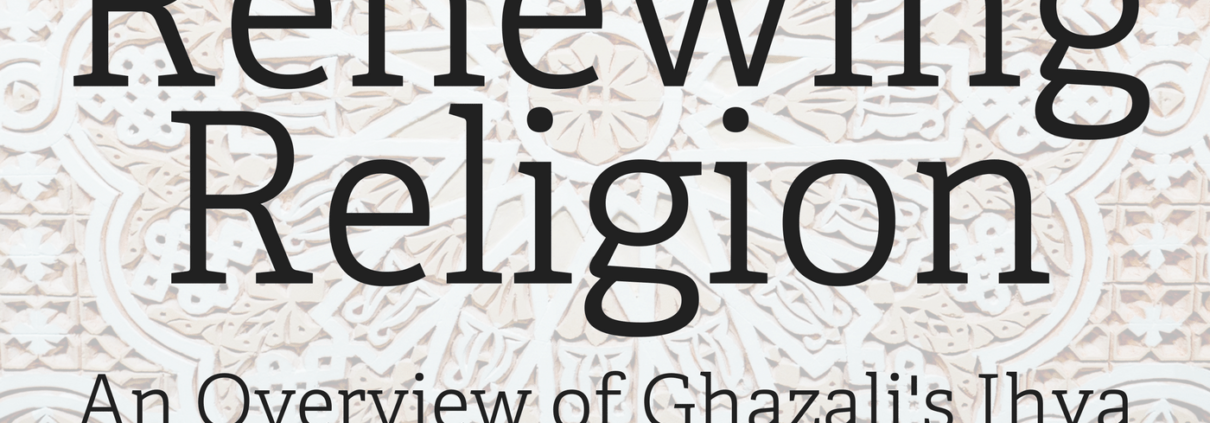04 – Prayer
: Play in a new window | Download to your device (13.7MB)
In this class, Ustadh Amjad Tarsin reviews the chapter on prayer from the Ihya Ulum al-Din (Renewing the Religious Sciences), the fourth chapter. Imam Al-Ghazali emphasized the importance of both the outward and inward in prayer. This condition is in line with the purpose of prayer and that is remembrance of Allah.
Imam Al-Ghazali adds in his book that a condition of prayer to be in a state of awe, humility and presence in prayer. This condition had not been previously included by the jurists in their detailing of the conditions of prayer.
The Prophet, peace and blessings upon him, said: “Whoever’s prayer does not prevent them from vile things and bad things, they have not increased with Allah anything except distance.” The purpose of i’bada (worship) is therefore taqwa. That is why one’s character needs to be inline with their outward performance of worship. Ustadh Amjad illustrates this point using various examples and stories of the companions and righteous people, may Allah be pleased with them.
Imam Al-Ghazali continues to explain that every action within prayer has a purpose and the overarching goal is to have the utmost reverence of Allah through both the heart and the body. That is why during prostration one humbles the most honored part of our being, our face, to our Lord.
Ustadh Amjad goes on to explain the two causes of distraction during prayer and their remedies:
[1] Outward distractions that can be avoided by seeking out a quiet places.
[2] Inward distractions which are more difficult to overcome. The way to deal with this is through preparation before beginning prayer by remembering the hereafter and standing before Allah and the severity of the outcome of that day. As well as freeing yourself of any worldly responsibilities prior to prayer so you are not rushed during prayer.
Lastly, Ustadh Amjad reminds the audience that the main purpose of prayer is to bring you closer to Allah and remove the veils (of all worldly things) between you and Him. As such we need to free ourselves of the distractions and bring our hearts to be more present with Allah during prayer and if we do that our prayer will be transformative.
In this brief overview of Imam Ghazali’s opus magnum, Ihya Ulum al-Din (Renewing the Religious Sciences), this series will serve as blueprint for how the believer can bring to life their religion. It will aim to help the believer to not just practice the form of the religion properly, but to also practice it with excellence.
Join our Ramadan 2017 program: #RamadanRenewal, in-person at SeekersHub Toronto or online through the SeekersHub Global platform. For more details, visit: http://seekershub.org/ramadan.
Checkout all of the SeekersHub podcasts by visiting http://seekershub.org/podcasts/

